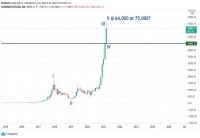|
Opalesque Industry Update - Europe's broken housing market requires around €11.8 trillion ($12.5tn) to address not just the chronic undersupply of appropriate housing, but affordability and energy efficiency of these homes, according to new research published today by INREV.
The paper, entitled 'Solving Europe's housing challenge: Aligning institutional capital to public policy ambitions through an industrial housing strategy', bases its estimate on stated housing policy requirements over the next ten years, alongside the cost of delivery per housing unit reported by active stakeholders in seven countries across Europe. Successfully dealing with the scale of the European housing crisis is beyond the scope of most parliamentary cycles and the financial capacity of public authorities. The paper reveals that the scale of Europe's housing challenge demands an industrial strategy that encompasses a more holistic, multi-decade approach to developing a housing solution masterplan. It needs to align public and private stakeholders over a long-term horizon, as well as stakeholders with a shorter-term business cycle, such as contractors who play a fundamental role in delivery. Harnessing institutional capital - especially long-term 'patient' capital - is an appropriate way to address the housing challenge. Institutions, such as pension funds and insurance companies, hold fiduciary duties to protect and enhance the income and savings of pensioners and savers, while the public sector has similar responsibilities to ensure it delivers the best outcomes for its people. This highlights a clear symbiosis between the objectives of policymakers, the public sector, and institutional investors, with the latter able to play an important role in tackling Europe's housing crisis by aligning their interests with long-term industrial housing strategies, especially given the role of public monies in the delivery of both regulated and PRS housing. While policy measures to moderate rents help those in appropriate housing, they fail to address the systemic issues in Europe's housing market. However, patient institutional capital can help to rapidly accelerate the delivery and professional management of high-quality housing across various tenure structures over the next decade. By the same token, investors stand to benefit from strong, reliable risk-adjusted returns that meet their long-term liability matching obligations. Outlining the current challenges, the paper explores the potential for direct and indirect financial and non-financial policy levers to be employed within an overarching industrial strategy to smooth investment flow and housing delivery. Given the importance of the crisis, INREV's series of papers on the residential sector is publicly available to help raise awareness and transparency in the search for a solution. Iryna Pylypchuk, Director of Research & Market Information at INREV, said: 'The scale of Europe's housing crisis is staggering. However, there is a clear opportunity for institutional allocators of 'patient capital' and the public sector to work together to solve what is one of the most pressing socio-economic issues of our time. The paper is a robust illustration and reminder of the vital contribution that the real estate investment industry can make to improving the quality of life for local communities, and the broader cohesion of society across Europe. The paper explores existing public and private initiatives that can be part of policymakers' toolkit, ranging from funding availability and costs to tax incentives, land availability, planning, and certainty of timing.'
|
Industry Updates
INREV: $12.5tn needed to solve Europe's housing crisis
Wednesday, November 20, 2024
|
|





 RSS
RSS








